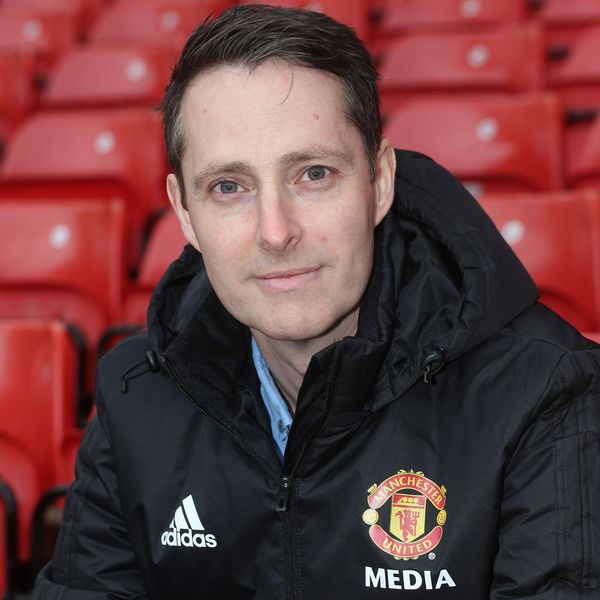The first United Review after World War II
It’s eight weeks since we last watched Manchester United in a behind-closed-doors Europa League tie at LASK in Austria, a game already that seems an age ago. But can you imagine waiting seven years for the next fixture?
On the occasion of the 75th anniversary of Victory in Europe Day – a day on which we remember those who lost their lives in World War II but also celebrate the end of the bloody conflict – it’s interesting to look back on how the club’s match programme reacted to the resumption of football.
Three months after victory in Europe came the end of hostilities with Japan, but it was another 12 months before the return of ‘competitive’ league action to England.
Much had changed in the intervening seven years, most notably our ‘home’. In March 1941, Old Trafford had been hit by a Luftwaffe air raid targeting Trafford Park and Salford docks. That night, a bomb destroyed the main stand and scorched the pitch, rendering the stadium unsafe and unusable.
So it was at Maine Road that United resumed league action in August 1946, facing Grimsby Town in Matt Busby’s first league game in charge. The surroundings may have been those of Manchester City, but the match programme was very much Manchester United.
For the historic occasion there was a new-look programme, renamed as United Review and designed with the iconic fan and player handshake on the front cover for the first time.
The content within the issue gives a fascinating insight into the mood of everyone connected with the club at the time: excitement tinged with sadness.
Setting the tone was then chairman James W Gibson, who welcomed the return of league football and passed on his thanks to the players who’d kept the club going during the war. ‘Teams comprised of strange personnel, weary war-workers and travel-stained servicemen, who, despite numerous difficulties, gallantly succeeded in keeping our grand name alive through the darkest days of the war.’
The return of football
GalleryTake a look through the first United match-day programme, following the conclusion of World War Two.
Programme editor Sidney F Wicks reflects on ‘our old way of life’ and recalls with sadness how ‘one lad who used to write clever stuff for the magazine lies quiet in Italy.’
‘Many a man who used to yell “Goal” at Old Trafford will never come back. These chums, these sportsmen, played a bigger game than football – and heard the referee’s whistle at the end of the final game,’ he wrote.
Further reflection comes from the programme’s two long-standing columnists Alf Clarke and Tom Jackson, both of whom would tragically lose their lives in the Munich Air Disaster.
Clarke pays respects to the players killed in the war – George Curless, Ben Carpenter and Bert Redwood – and then makes stark mention of George Gladwin. ‘The diminutive inside forward from Doncaster whose nimble feet had defenders guessing. Well, George came back but he will never play football again. The Japs slashed his legs to ribbons.’
By contrast, Tom Jackson focuses on the present and future, with his excitement at United’s prospects clear. He wrote: ‘Soccer, our great national game, begins a-new today where it left off in those dark, war-torn times. The venue has changed from Old Trafford to Maine Road, but everything else is here – the enthusiasm, the great band of loyal supporters, and some fine football talent.’
Then, finally, there’s Matt Busby, penning his and the programme’s first ever manager column, with the cheery opening line of: ‘To all United fans I say “How do you do?”’
The Reds won 2-1 that day and went on to finish our first post-war season with a runners-up spot in the league, missing out on the title to Liverpool by just a point. It was a promising start to the Busby era that hinted at the glory, glory days that lay ahead but also provided a much-needed distraction from the sad ones that had so recently passed.


1772034100778.png)

